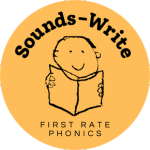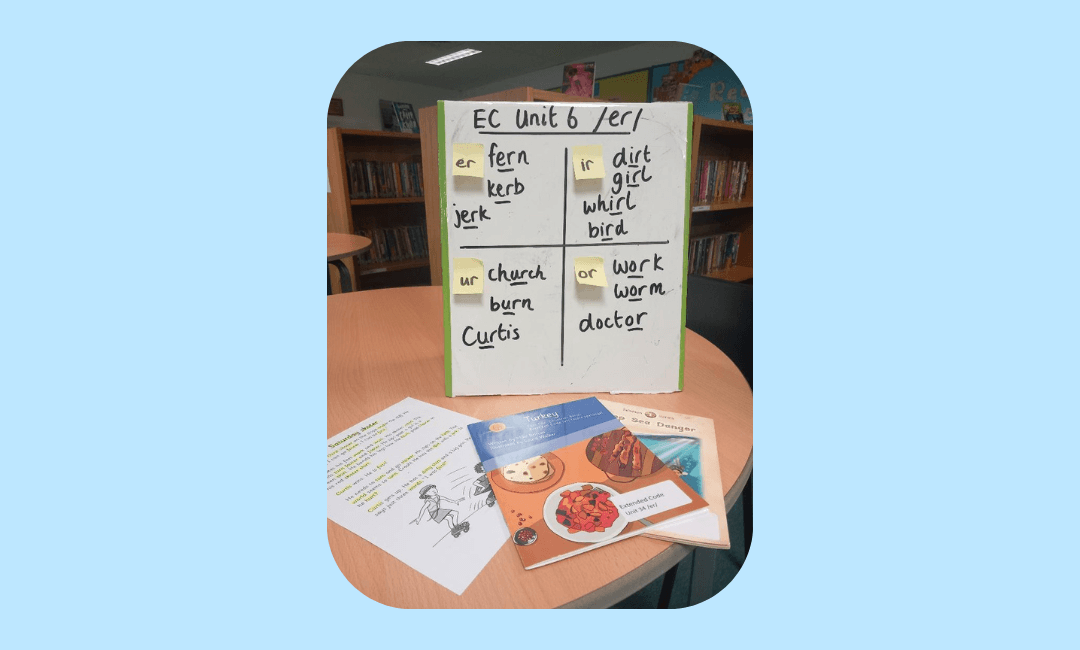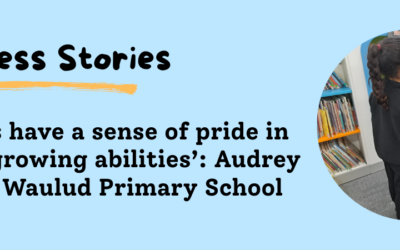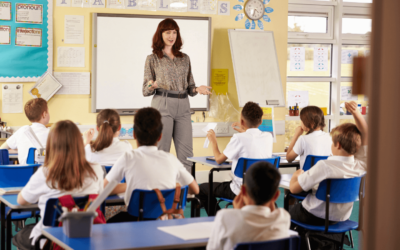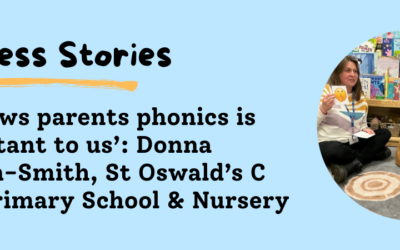Allison Shaw worked as a primary school teacher for over 30 years before becoming a Higher Level Teaching Assistant at Cardinal Hume, an ‘Outstanding’ (Ofsted, 2024) secondary school in the northeast of England. A strong interest in reading and literacy, shared with Kathryn Bogle, School Librarian and Reading Lead and a former secondary school English teacher, led them to introduce Sounds-Write interventions with great results.
Why did you choose Sounds-Write and how did you find the training?
A career change led me from primary to secondary school and I immediately realised there was a huge gap in some secondary students’ phonics knowledge. After speaking to the Senior Leadership Team and explaining the impact that Sounds-Write could have on those students, I was given the go-ahead to deliver Sounds-Write as an intervention. As soon as she completed the Sounds-Write training, Kathryn joined me in delivering the interventions.

In over thirty years of teaching, I can honestly say that the four-day training course was the best training that I have ever undertaken.
Allison Shaw, Higher Level Teaching Assistant
I was so impressed with the structure and detail of the course and the research behind Sounds-Write. The excellent trainer has continued to support myself and the school, and any queries are only an email away and are swiftly answered.
The resources on the Practitioners’ Portal, regular podcasts and additional training opportunities have been of exceptional use and quality. Materials are constantly being developed to support older students who are struggling with their reading, and these have been particularly useful for us as we believe that it is essential that all pupils are offered age-appropriate texts.
How do you decide who needs Sounds-Write?
We use primary school data and measure all students’ reading performance. Students who would benefit from reading intervention then complete a more detailed assessment to identify the type of difficulty they are facing. Those who are identified as having gaps in their phonic knowledge are allocated two one-hour Sounds-Write sessions each week.
What impact has Sounds-Write had on your students?
Students look forward to and enjoy their individual, paired or small group Sounds-Write sessions. They are often amazed to unlearn some of what has been taught previously e.g. silent letters and incorrect enunciation of some sounds. They talk openly about what they have found difficult with their reading, and it is a pleasure to see their confidence grow. Teachers also comment on the pupils’ increased enjoyment of reading and willingness to participate in lessons.
In 2023-24, we worked with 13 students from years 7 to 9 either individually, in pairs or groups of three. Their starting points varied and their reading ages were tested termly. We were delighted with their progress and continue to monitor them to ensure the gains are maintained. Some continue to receive reading intervention based on their individual needs.
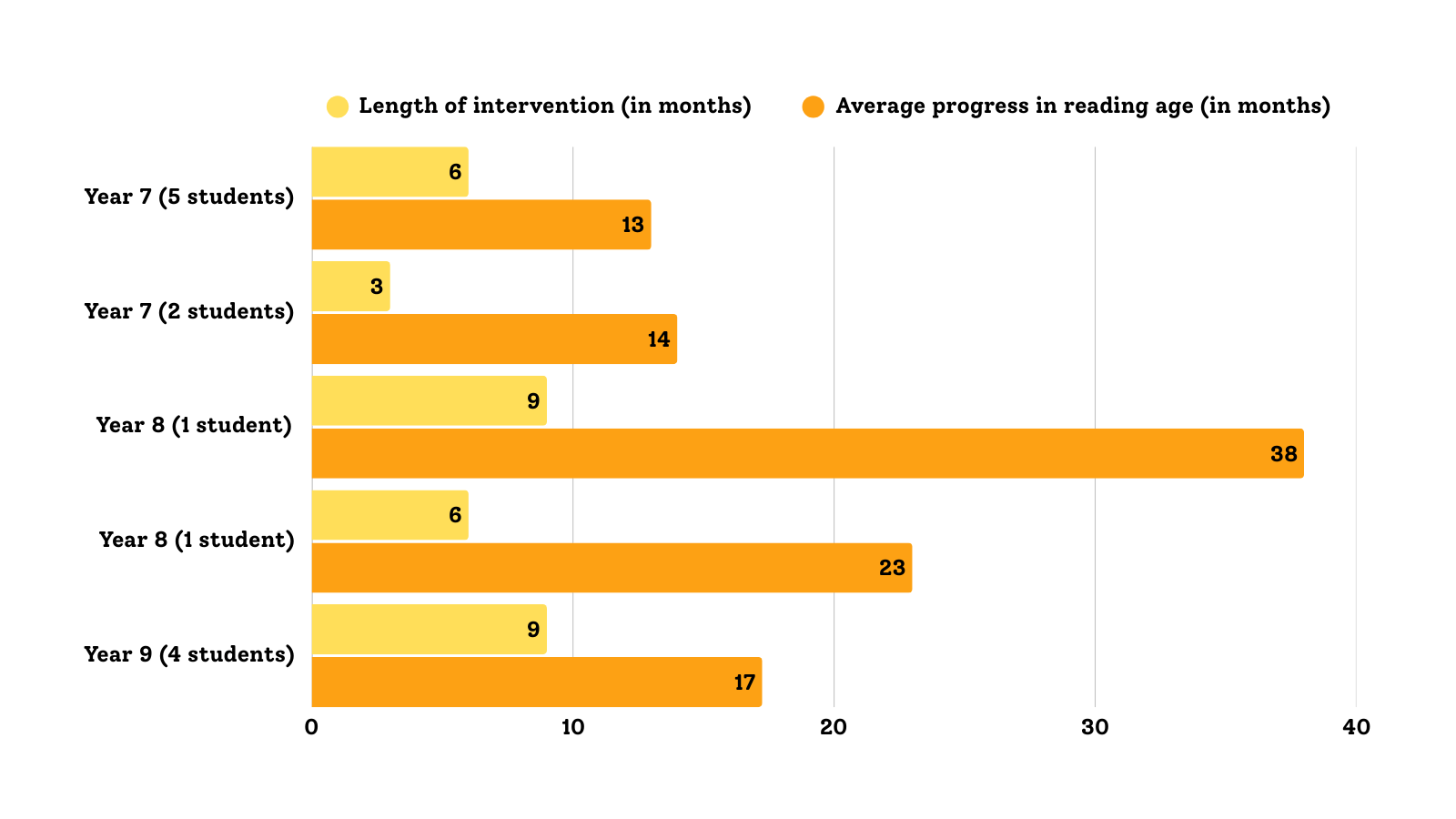
What are the challenges?
The most challenging aspect has been working around pupils’ busy timetables and ensuring that any missed curriculum content is kept to a minimum. Attendance can also be an issue for a small number of pupils, and can have an impact also on the progress of the whole group. We are fortunate that the school was able to invest in resourcing a new programme.
What would you say to other schools about Sounds-Write?
All secondary schools have students who would benefit from the Sounds- Write programme. Many students arrive in Year 7 with a reading age many years behind their chronological age and this must be immediately addressed. It is vital that students can read well so they can access all of the curriculum and ultimately pass external exams, putting them on a path to a successful future. Sounds-Write is a comprehensive programme that supports and builds skills and confidence in every student. I would recommend it to every secondary school.
You may also like
‘Pupils have a sense of pride in their growing abilities’: Audrey Duffy, Waulud Primary School
Audrey Duffy, Phonics Lead at this two-form entry school in Luton, explains how careful planning and the rigorous training of all staff has delivered solid results, and led to obtaining Silver accreditation in recognition of the school’s commitment to high quality...
Phonics Screening Check – Tips for a Strong Start to the Academic Year (Australia)
Whilst the timing of this blog was prompted by the start of the new academic year in Australia, the guidance will be useful to teachers using a Phonics Screening Check anywhere around the world. In fact, we shared a VERY similar post back in September for the start of...
‘It shows parents phonics is important to us’: Donna Wilson-Smith, St Oswald’s C of E Primary School & Nursery
Donna Wilson-Smith, Headteacher at St Oswald’s Church of England Primary School and Nursery and a former Sounds-Write Literacy Specialist, shares with us how they have been using Sounds-Write in the nursery to get children ready to start their literacy journey.Tell us...
Discover Sounds-Write
Book a free consultation to discuss your individual training needs.
